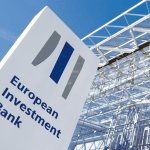ESG Panel Discusses How Impact Investing Can Bring Needed Changes to Capitalism – ESG News

Billy Nauman, Afsaneh Mashayekhi Beschloss, Martin Whittaker, Jonathan Bailey, and Megan Starr at Greenwich Economic Forum (Greenwich, CT)
(ESG News) – In 2015, The Carlyle Group invested in a 100-year-old commercial powertrain company called AxleTech. In passing at a board meeting, the CEO brought up that a customer asked about the possibility of prototyping an electric powertrain for electric trucks.
The meeting went on but, later, one of the investment team members latched onto the idea, explaining that the electrification of vehicles was taking off. Soon after, AxleTech dove headfirst into the development of an electric system, investing roughly $20 million into the project. It turned out to be a good decision—electric powertrains ended up being the core driver of growth for the company.
Megan Starr, Principal/Head of Impact at The Carlyle Group, offered this example during a panel discussion on ESG investing at the 2019 Greenwich Economic Forum to show how such alternative investing strategies fit into the market.
“This wasn’t someone starry-eyed saying ‘we should care about the environment.’ It was someone looking at the market that that company operated in and saying ‘where do we put our chips down and where is growth heading?’” Starr said. “ESG is saying let’s use all of our available data and signals to try to figure out how we create economic value that is sustainable.”
In other words, ESG (Environmental, Social, Governance) investing, which is also known as “sustainable investing” isn’t going to succeed simply by making a moral argument; it will only work when it makes sound financial sense. But for those committed to ESG investing, the positive message is that businesses’ appreciation of ESG principles is poised to expand. This was a key takeaway of the panel discussion, which was moderated by Billy Nauman of the Financial Times. In addition to Starr, the panel featured Afsaneh Mashayekhi Beschloss, Founder/CEO of Rockcreek; Martin Whittaker, CEO Just Capital; and Jonathan Bailey, Managing Director, Head of ESG at Neuberger Berman.
To begin the discussion, Nauman shared that at the Financial Times’ New York office there is a sign that reads, “Capitalism: Time for a reset.” From there, the talk detailed how alternative investing could—and should—be a big part of changing Wall Street’s future.
Whittaker, of Just Capital, explained that the public cares deeply about companies’ social responsibility. He said a survey of nearly 100,000 Americans showed that people are primarily concerned with five factors: how a company treats its workers, how it treats its employees, how it invests in communities where it is located, how it impacts the environment and how it is governed. All of these concepts go hand-in-hand with ESG investing.
“The public is a really important voice when you are trying to restore faith in markets and capitalism,” Whittaker said. “This is not something that’s happening in an ivory tower. This is happening around the kitchen tables of America.”
However, as Bailey pointed out, even though most people say they want ESG principles incorporated into their investment strategies, their main concern is performance—ultimately, most people want the greatest return on their investment.
That means the only way for ESG investing to prosper is to make it good for business.
“The good news is we have actually looked at the data,” Bailey said. His firm has examined the performance of active, large-cap U.S. equity strategies over the last two decades and found that companies who professed an incorporation of ESG principles performed a net of fee better than the S&P 500.
“Over a 20-year period, ESG-integrated strategies have added value,” Bailey said.
One way to measure the success of ESG investing is to examine the impact of diversity on a company’s performance. Beschloss was part of a study examining 700 of the largest private equity and venture firms in emerging markets through the lens of gender diversity. She said the results showed that gender-balanced teams produced 20% higher returns.
So if the data on the value of ESG is promising, why has incorporation lagged? Starr says messaging is key.
“The marketing issue has been a real damaging one for the space,” Starr said. “We are in the business of buying good companies and making them great companies. Great companies generate sustainable economic value. But we hear the word sustainable, particularly in places like the US, and we think of people wearing Birkenstocks dancing around a campfire when sustainable literally means the ability to persist over time.”
Therefore, as socially responsible actions increasingly become smart financial decisions, ESG investing will gain greater prominence, the panel described.
“It needs to become the norm,” Whittaker said. “When CNBC is talking about how companies are investing in their workers and customers when it is embarrassing for a CEO to walk into a room of his or her peers and know they are making 3,000 times that of the lowest-paid worker in their company, that’s when you begin to see this whole theme become the norm and not the exception.”












